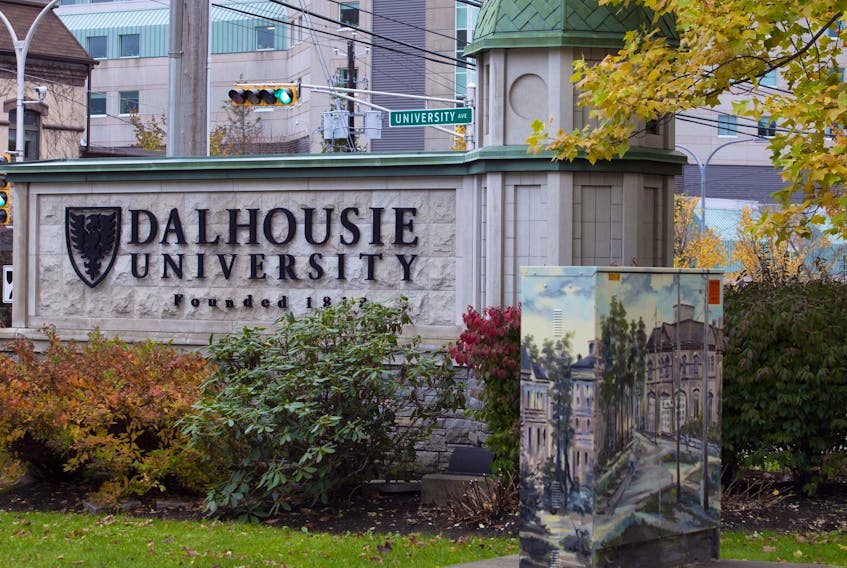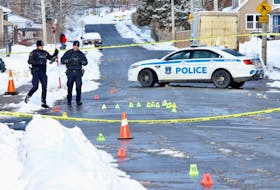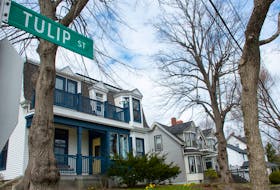Premier Stephen McNeil announced Thursday that the province is paying for 16 more seats at Dalhousie University's medical school at $75,000 apiece.
But Nova Scotia’s Progressive Conservatives say it should have happened years ago.
“It’s great news," said the party’s health critic Karla MacFarlane.
She had a question for the premier, though: "What took so long?"
"I want to remind people that Premier McNeil promised a doctor for every Nova Scotian back in 2013."
McNeil made the announcement in Halifax on Thursday, saying the seats are earmarked for Nova Scotia students and that the move is an important part of the province’s effort to recruit and retain doctors in the province.
Priority will be given to three groups of underrepresented students, from rural Nova Scotia, African Nova Scotians and Mi’kmaq as well as other Indigenous groups.
Four seats will be added this school year, followed by 12 more for the 2020-21 school year.
According to the Department of Health, each additional seat costs about $75,000, amounting to $300,000 in provincial funding this year for four seats. Funding will continue for the following four school years amounting to $1.5 million, $2.7 million, $3.9 million and $4.8 million respectively.
The investment does not include a requirement for graduating doctors to practice in Nova Scotia for a specific period of time.
McNeil said the move is meant to address the province’s doctor shortage and to help boost the number of graduating doctors from currently underrepresented populations in the province.
“This is focused on the need that’s required in Nova Scotia,” said McNeil. “We hear from people that they want their children to have access to a program here in Nova Scotia.
“This is why this is focused on rural and underrepresented populations. It’s very clear that medical schools are like the country, they become urbanized. So in order to attract physicians for rural communities they have to have some level of experience in those communities. Otherwise, they’ll stay in the urban parts of our country.”
Dr. David Anderson, dean of Dalhousie medical school, said only 13 black Nova Scotians and 12 Indigenous students are among the 440 medical students enrolled at Dalhousie. There are no status Mi’kmaq students. Anderson said the school’s goal is to raise those numbers while recruiting and retaining doctors.
“We very much want our physician population to reflect the diversity of our population,” said Anderson. “We need to work more with community leaders, with schools, physicians in communities to make people understand that it’s a very achievable goal to become a doctor.”
He said about 60 per cent of graduating doctors who complete their residency in Nova Scotia stay in the province. The percentage is higher for Dalhousie graduates, at over 80 per cent.
“So if we get (Dalhousie) student moving into Dalhousie residencies that’s our greatest opportunity to have them come back and stay here.”
The province’s updated waitlist for a family doctor stood at 52, 086 on July 1, down from 52, 253 the month prior.
The premier said there are no quick fixes to solve the doctor shortage problem in the province, which stems from “long-term systemic issues that have been happening in the delivery of medicine.”
“We’re shifting in partnership with the university in partnership with the medical community and the province of Nova Scotia,” said the premier.
“I want to say to Nova Scotians I understand that you don’t have access to a family physician, that we know that, we feel that. I want to say to them that there is no short-term fix to this. We want a long-term solution to this. We want to ensure that we can retain the physicians we have today.”
But MacFarlane says that offers little comfort to the thousands of Nova Scotians waiting for a family physician.
“What kind of comfort can Nova Scotians take in this investment into Dalhousie University?” said MacFarlane. “What kind of commitment is being made through this implementation to ensure that Nova Scotians are going to have more doctors and for all the people who still do not have a doctor, when will we have a doctor?”
RELATED:









